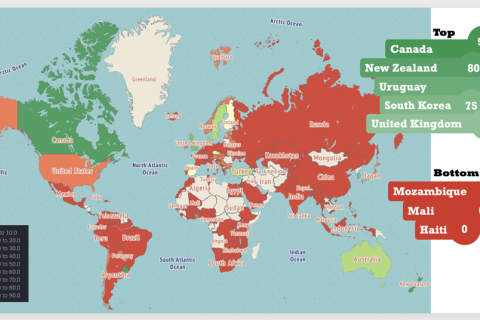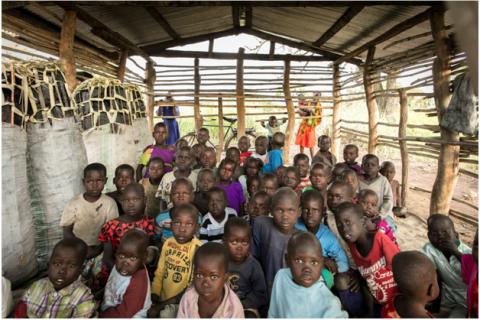
Topics and Regions
Marcello De Maria is a Postdoctoral Researcher based at the School of Agriculture, Policy and Development - University of Reading.
In 2019, he defended his PhD thesis titled 'Essays on the Economics of Large-Scale Land Acquisitions' and joined the TRADE Hub project (http://tradehub.earth/), where he is focusing on policy and institutional solutions for sustainable trade for a number of agricultural commodities - including soybean.
He worked for a decade as freelance researcher and data analyst with a variety of NGOs, research institutes, national and international organisations - including the Italian National Institute of Agricultural Economics (ex-INEA, now CREA), Transparency International, The Global Donor Platform on Land, GIZ and the Land Portal. His research focuses on different aspects of land justice (and injustice), ranging from trade and environmental economics, to land tenure and transparency in land information (eco)systems, ultimately looking at concrete solutions for the promotion of a more sustainable and just governance of land and other natural resources.
Research interests: Sustainable trade; Agricultural commodities; Large-scale land acquisitions; Land tenure; Land governance; Institutions; Property rights; Fair compensation; Land justice; Open land data; Transparency & anticorruption; Sustainable trade for agricultural commodities
Details
Website
Location
Contributions
Displaying 1 - 10 of 23How do we link local and national level measures with international policy and private sector initiatives on sustainable trade for agricultural commodities?
As the range of public, private, and civil-society-led commitments and interventions for sustainable trade continue to grow and diversify, the question of how to better coordinate efforts and resources – effectively delivering on Sustainable Development Goal 17 focusing on ‘Partnerships’ – remains open. Taking the requirement for better harmonisation across the spectrum of existing policy instruments for sustainable trade as the starting point, we borrow the concepts of vertical and horizontal policy integration, and readapt them to the wide range of sustainable trade tools.
Open Data and Corruption in Land Governance
The data revolution – characterised by the transition to big data, open data and new digital data infrastructures [1] – is projected to make an astonishing 44 billion terabytes of digital data and information available by the end of 2020 [2]. Despite this plethora of information now available to us, about 1 billion people in 140 countries still feel insecure about their land and property rights [3].
SDGs: Indicator 15.2.1
Progress towards sustainable forest management
Last updated on 1 February 2022
This indicator is currently classified as Tier I. The Food and Agriculture Organization of the United Nations (FAO) is the Custodian agency for this indicator.
Implementing Forest Landscape Restoration Initiatives
Forest landscape restoration (FLR) initiatives are being launched over much of the global South. These initiatives seek to restore ecological functions and associated ecosystem goods and services while improving social outcomes (Mansourian and Vallauri 2014). The scale of these initiatives is such that large geographic areas as well as large numbers of people will be affected in the countries that choose to participate in them.
A guide to the Restoration Opportunities Assessment Methodology (ROAM)
Recent developments have seen forest landscape restoration (FLR) become widely recognized as an important means of not only restoring ecological integrity at scale but also generating additional local-to-global benefits. This handbook presents the Restoration Opportunities Assessment Methodology (ROAM), which provides a flexible and affordable framework for countries to rapidly identify and analyse FLR potential and locate special areas of opportunity at a national or sub-national level.
KOSMOS-Workshop: Post-conflict scenarios of land use in Colombia
Given the uncertainties generated after the peace agreements in Colombia, we believe that understanding and studying the most relevant transformation agents and potential socio-ecological pathways into the future is a key step to develop pro-active management strategies.
Empowering Women in Post-Conflict Africa
By Amber Rouleau, communications officer for African Women Rising.
Read the orignial version here.
SANTA BARBARA, California, USA, Nov 8 2018 (IPS) - While its conflict ended in 2007, Northern Uganda struggles with its legacy as one of the most aid-dependent regions in the world.
Increasing land conflicts in Gambia
Effective land management is predicated on proper ownership. It is those with legitimate documentation for the land they claim to own who can confidently make decisions on what to do with their parcels and maximise the potential.
Ownership is essentially determined by title deeds. Unfortunately, there is increasing conflicts involving land conflicts in the country that need urgent address.
Torching And Extortion: OSINT Analysis Of Burning Agriculture In Iraq
June 3, 2019
Read the original blog here.
In early May 2019, it was reported that agricultural areas of central and northern Iraq were being set ablaze — allegedly by remaining pockets of fighters from the so-called Islamic State.










